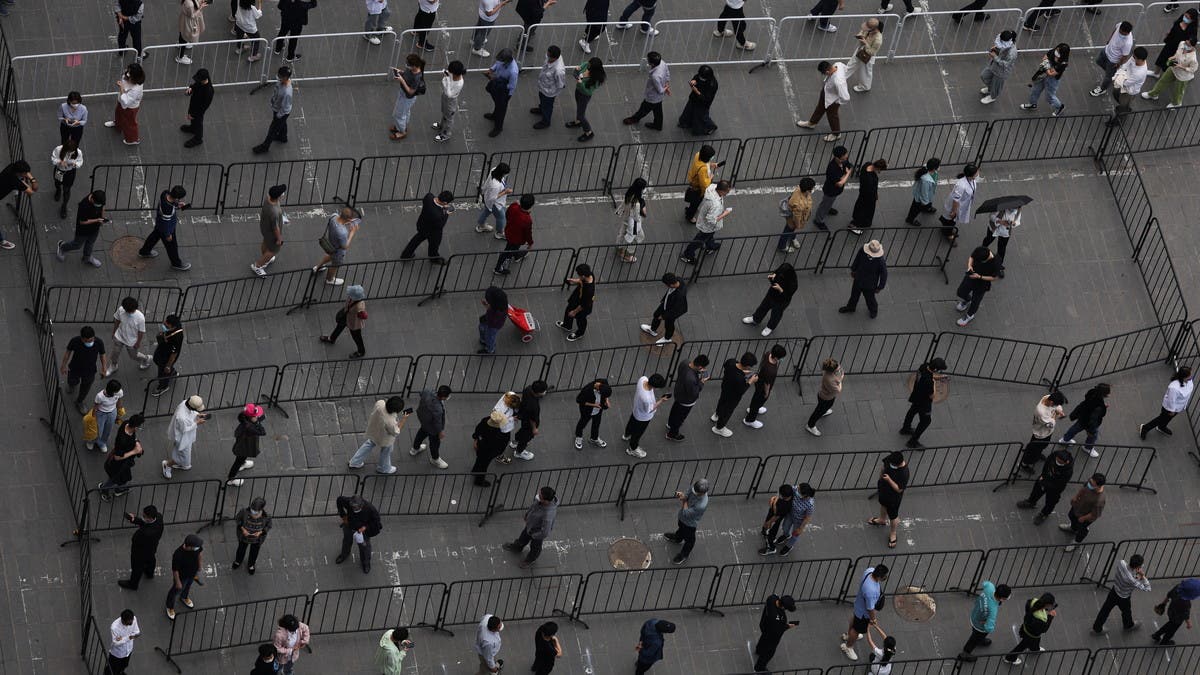Beijing residents snapped up food and other supplies as the city’s biggest district began mass testing of all residents on Monday, prompting fears of a Shanghai-style lockdown after dozens of COVID-19 cases in the capital in recent days.
Authorities in Chaoyang, home to 3.45 million people, late on Sunday ordered residents and those who work there to be tested three times this week as Beijing warned the virus had “stealthily” spread in the city for about a week before being detected.
For the latest headlines, follow our Google News channel online or via the app.
“I’m preparing for the worst,” said a graduate student in the nearby Haidian district surnamed Zhang, who placed online orders for dozens of snacks and 10 pounds of apples.
Shoppers in the city crowded stores and online platforms to stock up on leafy vegetables, fresh meat, instant noodles and rolls of toilet paper.
In Shanghai, where most of its 25 million residents have been locked down for weeks, the main food supply bottleneck has been the lack of enough couriers to make deliveries to homes, fueling anger among residents.
In Beijing, supermarket chains including Carrefour and Wumart said they had more than doubled inventories, while Meituan’s grocery-focused e-commerce platform increased stocks and the number of staffers for sorting and delivery, according to the state-backed Beijing Daily.
Since Friday, Beijing has reported 47 locally transmitted cases, with Chaoyang accounting for more than half of them.
Even in districts such as Haidian that have yet to report any cases in the current outbreak, there is a sense of growing unease over food supply.
Areas under lockdown
While the Chinese capital's caseload is small compared to those globally and the hundreds of thousands in Shanghai, Chaoyang district told residents to reduce public activities, although most schools, stores and offices remained open.
Chinese shares tumbled on Monday, with the blue-chip CSI300 index closing down 4.9 percent at a two-year low, weighed by worries Beijing was on the verge of joining Shanghai in lockdowns.
Read the latest updates in our dedicated coronavirus section.
The Shanghai Composite Index slumped 5.1 percent.
Beijing’s Chaoyang district is home to many wealthy residents, most foreign embassies as well as entertainment venues and corporate headquarters. It has little manufacturing.
“The current outbreak in Beijing is spreading stealthily from sources that remained unknown yet and is developing rapidly,” a municipality official said on Sunday.
More than a dozen buildings in Chaoyang have been put under lockdown. For the rest of the district, people were to be tested on Monday and again on Wednesday and Friday.
On Monday morning, people queued at makeshift testing sites manned by medical workers in protective suits. Under mass testing campaigns in China, multiple samples are tested together.
“I came as the notice suggested, at 6 a.m., for testing just to make sure that I can get to work on time,” said a man in his 30s queuing for a test in his residential compound.
By the early afternoon, movement restrictions in one part of Chaoyang were tightened, with residents told not to leave the area at all and not to leave their local compounds for non-essential reasons, state television reported.
Read more:
COVID-19 third leading cause of death again in 2021: US study
Shanghai fences up COVID-hit areas, fueling fresh outcry
Foxconn’s key iPhone plant operating in China region hit by COVID-19 lockdown

 World2 years ago
World2 years ago
 World2 years ago
World2 years ago
 Entertainment7 years ago
Entertainment7 years ago
 World7 years ago
World7 years ago
 Entertainment7 years ago
Entertainment7 years ago






